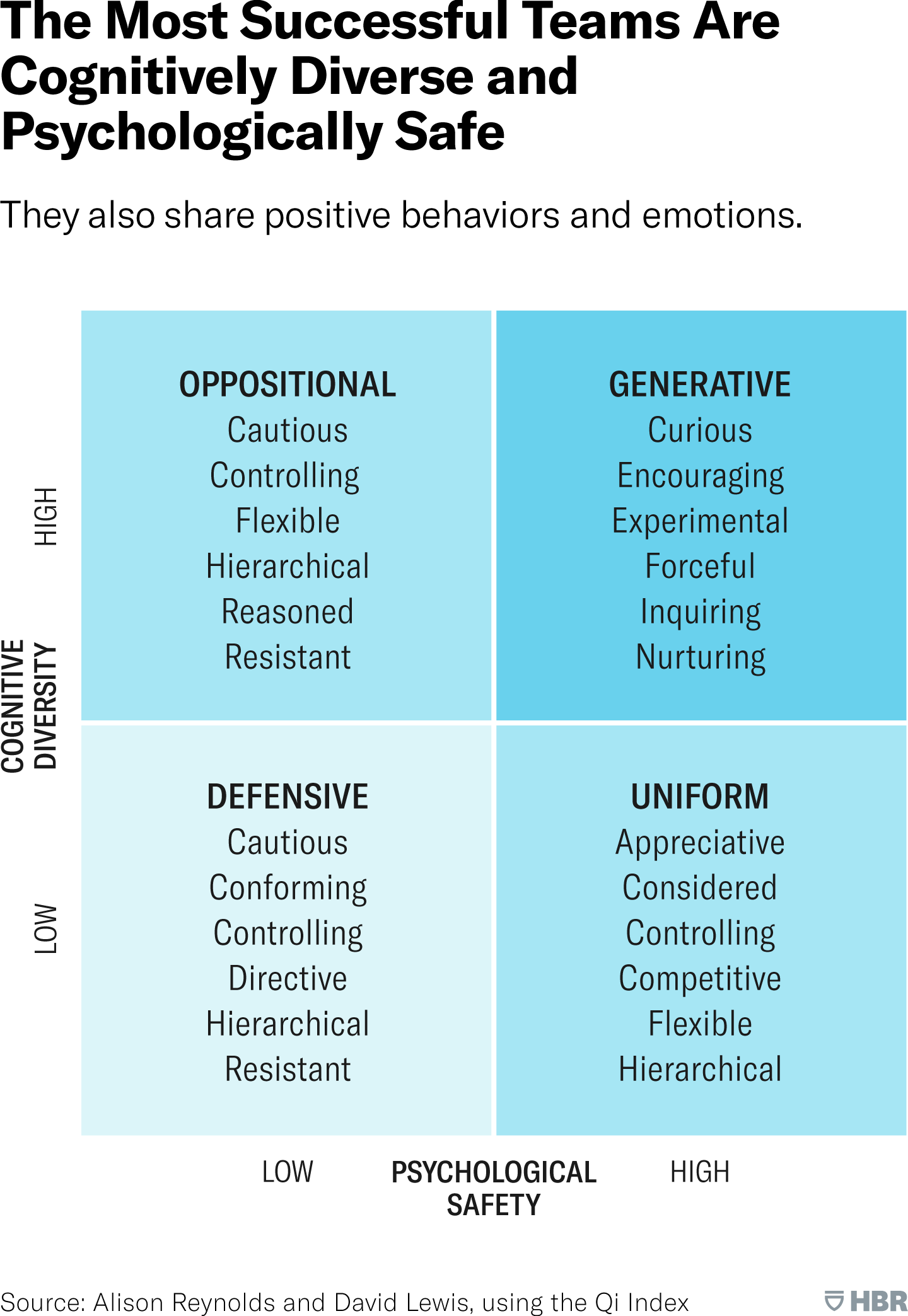The Insight 💡
People working together can produce an enormous value if coordinated more effectively.
Ensuring optimal value requires synergy, trust, and communication while ensuring competence forms the basis upon which everything else relies.
What Makes A Great Team?
Vision, Unity and Purpose
Across the globe, organizations initiate their operations with the aspiration of achieving success. One critical aspect business owners must carefully consider is building a strong team for their dream company. The significance of teamwork cannot be overstated, as individual efforts alone cannot yield certain outcomes, regardless of the amount of work invested.
Assembling the right mix of talented individuals to form the backbone of your business involves seeking people with both hard and soft skills. A strong team may take various forms, but key attributes include competence, problem-solving, exceptional communication, creativity, innovation, and sound decision-making.
A successful team should also encompass diverse individuals with varying skill sets and personalities, enhancing overall team performance. To ensure business growth, each team member must fulfill their role effectively.
Teams operate differently in various environments. Functional teams consist of members who report to a single manager, such as an HR department. Cross-functional teams involve individuals from different departments working together to achieve a common goal from a multidisciplinary perspective, such as council or committee members.
Other team types include troubleshooting teams that devise solutions to current problems and project teams comprising members from different departments. Emergency situations may require a task force team.
Every team should have a leader who oversees team processes to ensure effective collaboration. It's evident that strong teams are vital for business success. If you're building a team from scratch, read on to discover the top characteristics to look for in order to create a high-performing business team.
Team Synergy

Team synergy refers to the combined efforts of individual or business teams when they work together for the greater good. Members of the team seamlessly coordinate their actions for the team's success.
When your departments are in harmony while working together, they will produce something of great value to your organization.
Synergy encourages your employees to connect, communicate effectively and also collaborate successfully.
This sense of togetherness maximizes everyone's unique experiences and perspectives, allowing them to lean on each other as they also get to learn from each other and boost personal morale.
Building team synergy relies heavily on good communication among fellow team members, trust in one another, and business culture.
The communication company Verizon and Vodafone are testament that a good merger requires a high level of team synergy.
The business boomed considerably following the acquisition, making it among the top mergers that ever took place.
Trust

Businesses thrive more when your teams are working together and trusting in each other's decisions. It is perhaps the chief characteristic of an effective team.
A team without trust isn't one but rather just a bunch of individuals completing their share of work to the best of their knowledge.
Trusting each other in business teams relies on having faith in one's character and ability to get a task done.
It brings about a sense of safety, especially in decision-making. It also creates room for individuals to open up about specific areas that could need more attention, such as areas facing vulnerabilities and risk to get support. You need to trust people to want them to help you.
It should allow fellow team members to share their points of view.
Take the social media firm ''Buffer'' which boasts of its strong values rooted in transparency and trust. CEO Joel Gascoigne says that one of the most significant factors that encourage teamwork between his business teams.
Their firm has no private email system guarding their information. When your group members trust one another, it promotes innovation and productivity and pushes people to think outside of the box.
As a business owner, building trust begins with you through the example you broadcast to your employees. Trust encourages risk-taking, which drives innovation.
Good communication and getting to know your employees deeper is also an excellent way to encourage your teams to do so.
Communication

Communication in business might be the foundation of any successful project. It's how good teams and the employer share information in either verbal or written form.
You cannot afford to have poor communication, or you won't achieve your business goals and objectives.
Good communication will benefit your business in preventing conflicts and misunderstandings between your business teams, contribute to sharing insights, promote customer service, and is an excellent way to ensure everyone is meeting their goals and contributing towards the larger success.
To improve the communication levels in your business teams, you can practice and encourage good listening skills while interacting with one another because communication is not only about speaking but also practising active listening.
High-performing teams know the value of listening because when members listen, it shows respect and clears ambiguity.
Credit Karma's founder and CEO implemented an open-door policy to promote open communication in the workplace.
Open communication has many benefits: It creates team dynamics, and brings diverse opinions and new ideas. Allowing people to communicate openly also leads to a team's success because it makes a clear sense of how things are going.
Modern businesses invest heavily in collaboration tools that allow effective communication.
Respect

Respect is a non-negotiable factor when it comes to the workplace. When employees fail to treat each other appropriately, chaos begins gradually building, and attention shifts away from the main focus of the business.
Soon, no one will be interested in taking advice from anyone, causing productivity and efficiency to decline. Respect looks like treating each other with kindness regarding their opinions(especially differing opinions), experiences, or what they would wish to do.
A good business demonstrates their respect towards one another by letting anyone express their views and ideas, avoiding name-calling and insults, and judging one another.
clear direction alternative ideas effective teams
Good conflict management skills are also crucial in building respect in the workplace.
A company in Silicon Valley that Jack Dorsey leads has a policy that requires employees to take notes when someone comes up with an idea and share them with other employees for their discussion.
Finding a way to manage emotional intelligence also goes away into building respect towards each other. Making sure that rules are accurately expressed also promotes respect in the business environment
Accountability

Accountability in teamwork is when people are responsible for completing tasks and achieving organizational goals.
It is a very important organizational behavior because it helps to ensure that all members of the team work hard and in the same direction to achieve the desired outcomes: that is, the success of the team in the organization.
A team without accountability may result in poor performance, especially if there is no sense of responsibility, loyalty, and respect among team members.
Team members must therefore be held accountable for their actions and decisions.
However, this will only happen if they are given clear instructions and information on what needs to be done and when it should be done.
There are three levels of accountability:
The work level: This is where each member knows exactly what they need to do to achieve the goal. Their actions and responsibilities must be clear and communicated to them.
The member level: This has two parts: one is that each member knows exactly what they are supposed to do on individual tasks. The second part is that each member understands how their actions impact others in the team.
The individual level: This means that each team member takes accountability for themselves, which means being able to predict the consequences of their own actions or lack of action, rather than transferring it.
Competence

Competence is the combination of knowledge and experience that someone has in a specific field or area. Begin staffing a team that does not have the competencies needed will ultimately impact the team goals. That's why it is crucial to spend significant time on getting the right people.
Someone may be book smart but have little real-world application skills, while another person could be very experienced within their industry with no formal education at all.
In either case, being competent in a field results from competence in the knowledge and expertise that you have about performing your job.
Second, when we talk about building a strong team, there are two types of competence: individual and collective.
Collective competency is how well an entire group functions together as one unit to achieve its goals. An example would be the way a football team or sports team works together to win games or championships.
These teams consist of individuals with specific skills, but they can work well together as part of a collective unit that tends towards one goal, which is winning.
The final type of competence that you need in order to build an effective company is Company Competence.
This is how well your company functions as a whole to make decisions and solve problems.
This type of competence comes from having competent employees who know what they are doing but also have the ability to function within groups in order to work together towards one common goal or objective.
Interesting fact: when an incompetent individual is put in a team of high performers, rather than becoming a good team member, the whole team productivity decreases. And this applies across various fields.
Goals

One thing that unifies your employees is the purpose that brought them to your business doorstep, and that is they all want to succeed at their job.
To ensure your success, you need to explain to your staff what you need from them and their teams to make your organization succeed. The team goals are very important factors influencing their work.
They also need to have an image of the journey you have for the business and how you plan on achieving your goals and objectives, and how theirs align with yours.
To put in the necessary work, your teams need to understand their defined roles in the big picture.
Having a shared vision builds a common path and encourages the team members to weigh in on ways to achieve that success.
Communicating your business goals encourages a more productive workforce and increases their levels of engagement.
At Google, it's evident that when business teams work towards a particular goal, the objectives set are met, and success is witnessed as a result. Google has a common goal on digital advertising with the business teams it works with.
This has led them to become the topmost marketing platform. When it comes to decision-making, the choices made will be geared towards business success.
Additionally, it's a greater way to build communication, accountability, and trust levels among your employees.
Results

Leaders have a responsibility to ensure that the team works well and is always focused on the right priorities. However, leaders must overcome many challenges when building a great team.
The team leader plays an essential role in getting the members to work closely to reach their common goals. He or she wears many hats and supports members when there is an obstacle reaching their performance.
This can happen in many situations, whether the individual's contribution is not enough, significant time is being wasted, or differing opinion is slowing down the team's performance.
In every company, you need to build a team to help you drive growth, have a positive impact, and make your company the dominant force in your industry.
Building a high-performance team requires more than just randomly creating a group of talented people.
Once everyone knows what the end goal is, it would now be time to divide the tasks between the people who are in the team.
For example, one will handle the marketing, and another team member will manage the operations. It is all about assigning the tasks that pertain to the strengths of the team members.
At the start, the team members can be shown the tasks, and they can get to choose which one would best fit their set of abilities.
This ensures optimal allocation of the team resources. We all know that can only lead to disaster, and that is one thing you must avoid in a business.
Bonus Characteristics for a Great Team
Throughout the business world, there are some highly successful business teams, and amongst them figure Apple and Google.
If you look closely at effective teams, it is the qualities of the team members that make it such a success. Some of these includes:
- Understanding the company's product or service
- Define the purpose clearly
- Commitment to the company's success
- A problem-solving approach to work
- Emotional intelligence and to critical thinking
- Alignment with the company's values.
- Competitive individuals
- Learn from their mistakes
The above characteristics are essential for the success of your team.
Of course, people move on, and team members change, but if you can start off with the right team, staff retention won't be an issue, as the best people will want to work for your company.
Once you develop a positive team and organizational culture and have clear expectations aligned with your goals, your company will thrive.
Finally here is an illustrative matrix from a hbr article.

The Bottom Line
Building a good and successful team can be challenging, but if you can have one that embodies the above essential characteristics, you can be sure that success is on the horizon.
Start-up companies looking to build an efficient team will have a much easier time launching and achieving their goals with the right team by their side.
Subscribe to our email newsletter and unlock access to members-only content and exclusive updates.

Comments